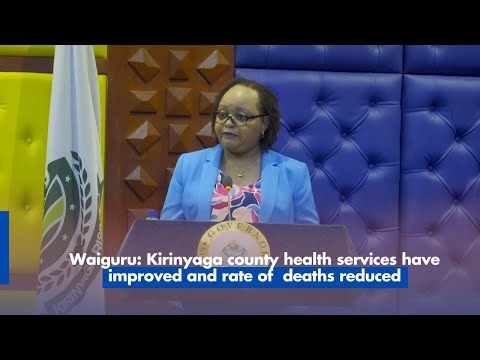
In many funeral homes across the country, the numbers speak
louder than the silence.
Out of every 10 suicide cases received, eight are male.
That grim statistic is not just a number, but a reflection of
a growing, unspoken crisis that is mental wealth among men.
While much progress is being made in mental health reform, as
evidenced by the recent launch of the Nairobi City County Mental Health
Strategic Action Plan 2025–2030, one urgent issue that demands a lot of
attention is the mental well-being of men and boys.
Morgue records and frontline health workers tell a troubling
story when it comes to men’s mental health, especially young men and boys.
“Out of every 10 suicide bodies that come in, eight are male.
That should already tell you how serious this mental health issue is,
especially when it comes to the boy child,” said Stella Waruingi, Head of
Mental Health and Psychosocial Support (MHPSS).
The data emerging from post-COVID analysis shows clearly that
mental health is not gender-neutral but affects men more significantly.
Speaking during the event on June 13, 2025, Waruingi
reiterated the importance of localized governance in health service delivery,
specifically calling for the establishment of County Mental Health Councils and
coordination units.
Waruingi added that their cases are increasing, leading to
risks such as depression, substance abuse, and, finally, suicide, instead of
them seeking help.
“They often suffer in silence, bound by harmful social norms
around masculinity that equate vulnerability with weakness,” Waruingi
explained.
This analysis, she noted, is essential for oversight, patient
rights, and effective implementation, saying it shows clearly that mental
health is not gender-neutral.
This is more than a mental health concern. It’s a
socio-economic and developmental emergency.
A generation of young men, burdened by unemployment, urban
poverty, family breakdown, and unspoken trauma, are being lost to silence, and
the ripple effects stretch across families, communities, and the economy at
large.
Why
Aren’t Men Talking?
Around 40 per cent of men have never discussed their mental
health challenges, and only a minority (40 per cent in 2021) of men with
reported mental illness actually receive mental health care services, according
to the Association of American Medical Colleges (AAMC).
The stigma around mental health remains high across Kenya,
but it is particularly entrenched among men.
Many were raised to suppress emotion, to be “strong,” to
avoid seeking help.
Additionally, studies have shown that men are less likely to utilise psychiatric outpatient services compared to women, even when controlling for various factors.
“In 2021, only 40 per cent of men with a reported mental
illness received mental health care services, compared to 52 per cent of women,”
AAMC stated.
“We must therefore rethink how we design and deliver mental
health services, particularly for men,” said Dr. Mercy Karanja, Deputy Head at
MHPSS.
“That means meeting them where they are: in workplaces,
sports groups, digital platforms, barbershops, matatu stages, and places of
worship. It also means training male-friendly community health promoters and encouraging
peer-led support models that normalise vulnerability.”
New Opportunity
The Nairobi Mental Health Strategic Plan gives the blueprint
to address this head-on.
Nairobi City County, on June 13, 2025, launched its Mental
Health Strategic Action Plan in conjunction with the Ministry of Health and
various non-governmental organisations.
The plan seeks to operationalise the Kenya National Mental
Health Action Plan at the county level, emphasising decentralisation,
community-centred approaches, and multi-sectoral collaboration.
The strategy has been aligned with the County Integrated
Development Plan (CIDP), Universal Health Coverage, and National Mental Health
Policy.
It envisions mental health as a people-centred, stigma-free
service integrated into every level of healthcare, from community outreach to
referral hospitals.
The total budget required is Sh5.3 billion over five years,
where at least Sh1 billion is expected to be raised annually.
This was a major historic achievement, as this is the first
document generated by the Nairobi City County on mental health issues.
Its five pillars, from strengthening leadership and
governance to infrastructure, data systems, and community engagement, are
crucial to tackling the underlying causes of mental health neglect.
Karanja called for urgent action to reach men and boys, which she described as needing to be relevant, respectful, and responsive.
















